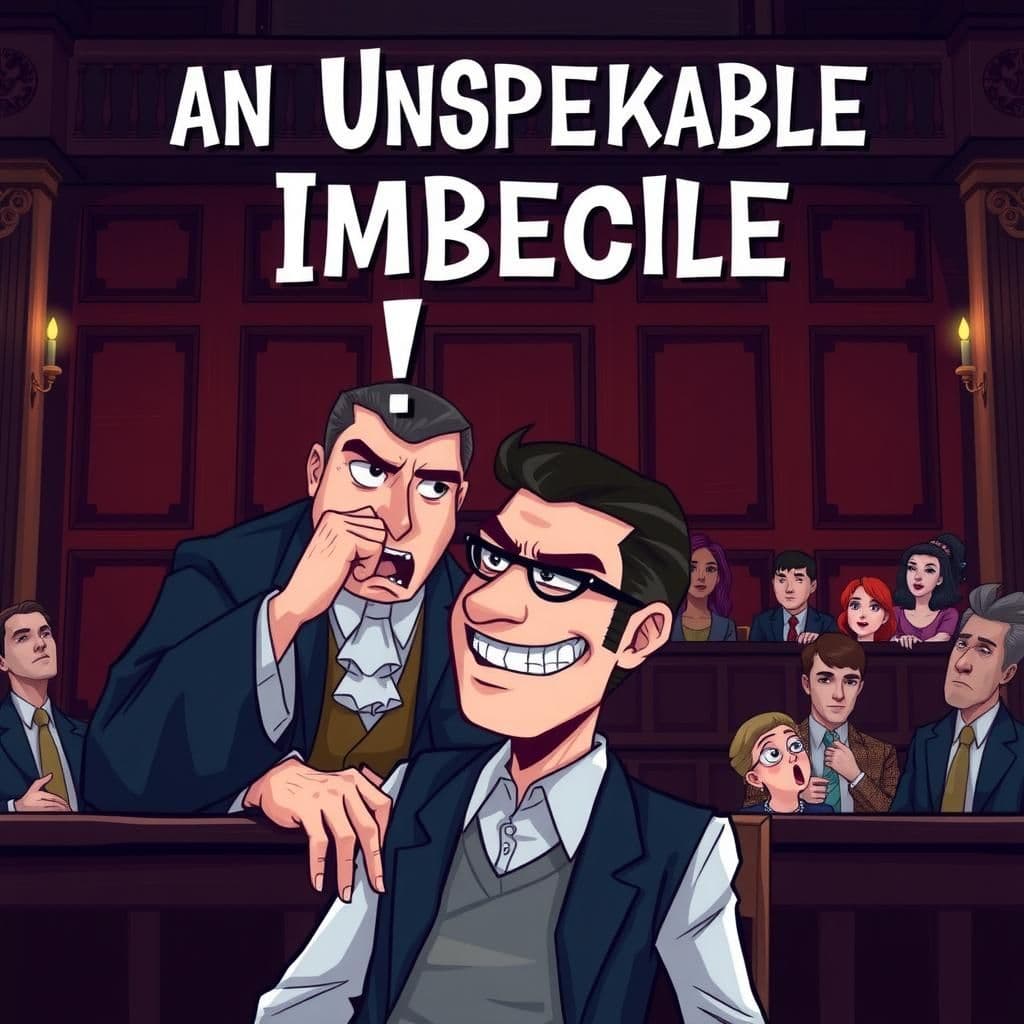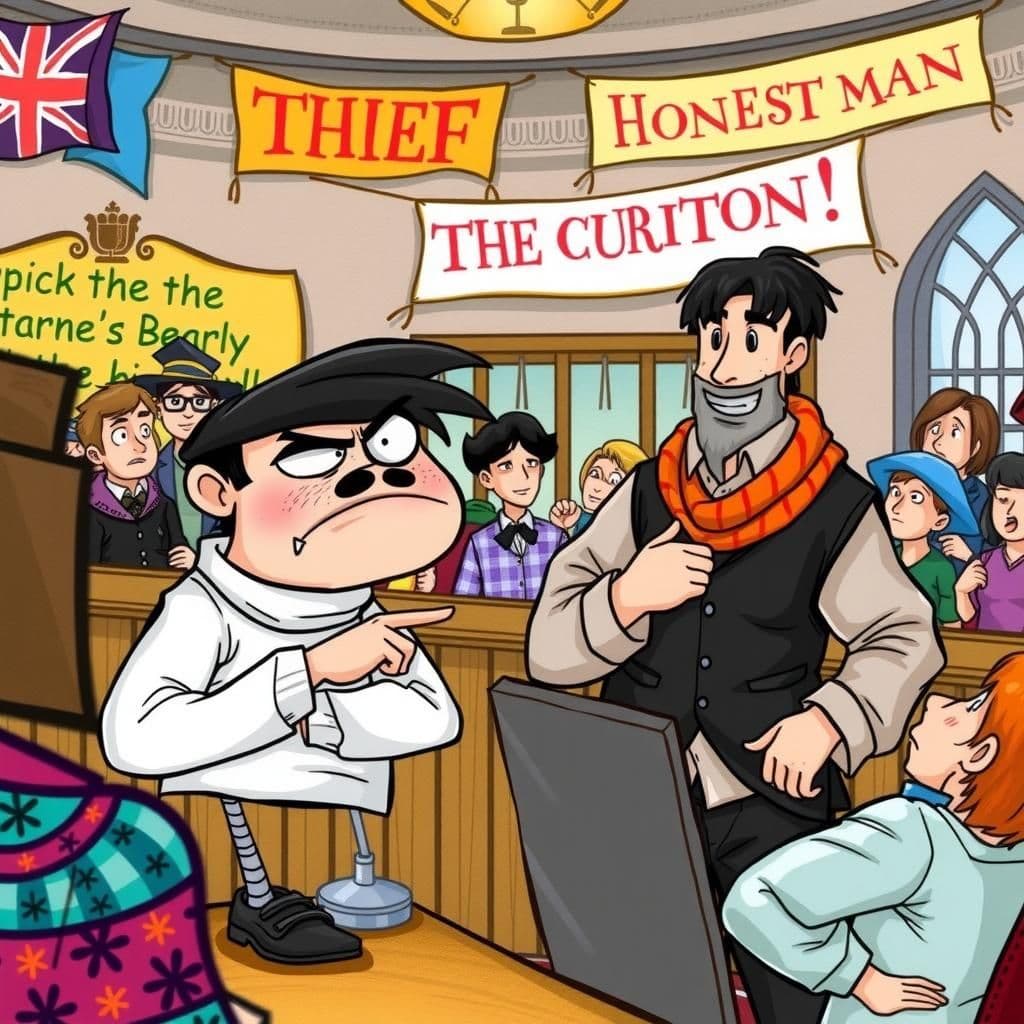An Unspeakable Imbecile

Story Summary
In "An Unspeakable Imbecile," a judge poses a final question to a convicted assassin before sentencing him to death, seeking any last words. The assassin, dismissing the notion that his words could alter his fate, delivers a sharp insult, labeling the judge an "unspeakable old imbecile." This engaging moral tale highlights the futility of defiance in the face of inevitable consequences while offering simple lessons from stories about the respect for authority and the weight of one's words.
Click to reveal the moral of the story
The moral of the story highlights the futility of defiance in the face of inevitable consequences.
Historical Context
This exchange reflects a blend of dark humor and social commentary typical of American literature in the late 19th and early 20th centuries, particularly in the works of authors like Mark Twain and Ambrose Bierce, who often critiqued societal norms and the justice system. The dialogue showcases the absurdity of courtroom proceedings and the human tendency to confront authority with sarcasm, resonating with themes found in various retellings of the "trial" narrative across cultures, where the accused often challenges the legitimacy of their punishment.
Our Editors Opinion
This story highlights the futility of communication when the outcome is predetermined, reflecting modern life's often cynical view of justice and authority. In a real-life scenario, a whistleblower might expose corruption within a corporation, only to be met with retaliation instead of reform, illustrating how speaking out can feel pointless when the system is rigged against change.
You May Also Like

The Wolf Who Would Be a Lion
In this entertaining moral story, a foolish man, convinced of his own greatness, becomes a Commissioner for an exhibition of the mentally challenged and is mistakenly treated as one of the exhibits himself. As he is taken away to a glass case, he laments his ambition and wishes he had been content with his ordinary life, highlighting the best moral of the story: the dangers of overestimating oneself. This easy small story with a moral serves as a poignant reminder of the value of humility.

The Sparrow and the Hare
In "The Sparrow and the Hare," a Hare weeps after being attacked by an eagle, only to be mocked by a Sparrow for her lack of speed. However, the Sparrow soon faces a similar fate at the claws of a hawk, providing a poignant lesson in the unpredictability of fate. This short and sweet moral story reminds us that even those who gloat over others' misfortunes may find themselves in a similar predicament.

The Thief and the Honest Man
In the wisdom-packed moral story "The Thief and the Honest Man," a thief sues his accomplices for his share of stolen goods from an Honest Man, who cleverly evades the trial by claiming he is merely an agent for other honest individuals. When served with a subpoena, the Honest Man amusingly distracts himself by pretending to pick his own pockets, illustrating the lessons learned from stories about accountability and cleverness in the face of adversity. This short story with a moral leaves readers pondering the complexities of honesty and complicity in wrongdoing.
Other names for this story
"Judicial Insults, Convicted Remarks, Imbecile in Court, Death Sentence Dialogues, The Assassin's Retort, A Courtroom Confrontation, The Judge and the Fool, Unspeakable Courtroom Moments"
Did You Know?
This story highlights the themes of existentialism and the futility of communication in the face of inevitable fate, as the assassin's poignant retort underscores the absurdity of seeking justification in a situation where the outcome is already predetermined.
Subscribe to Daily Stories
Get a new moral story in your inbox every day.